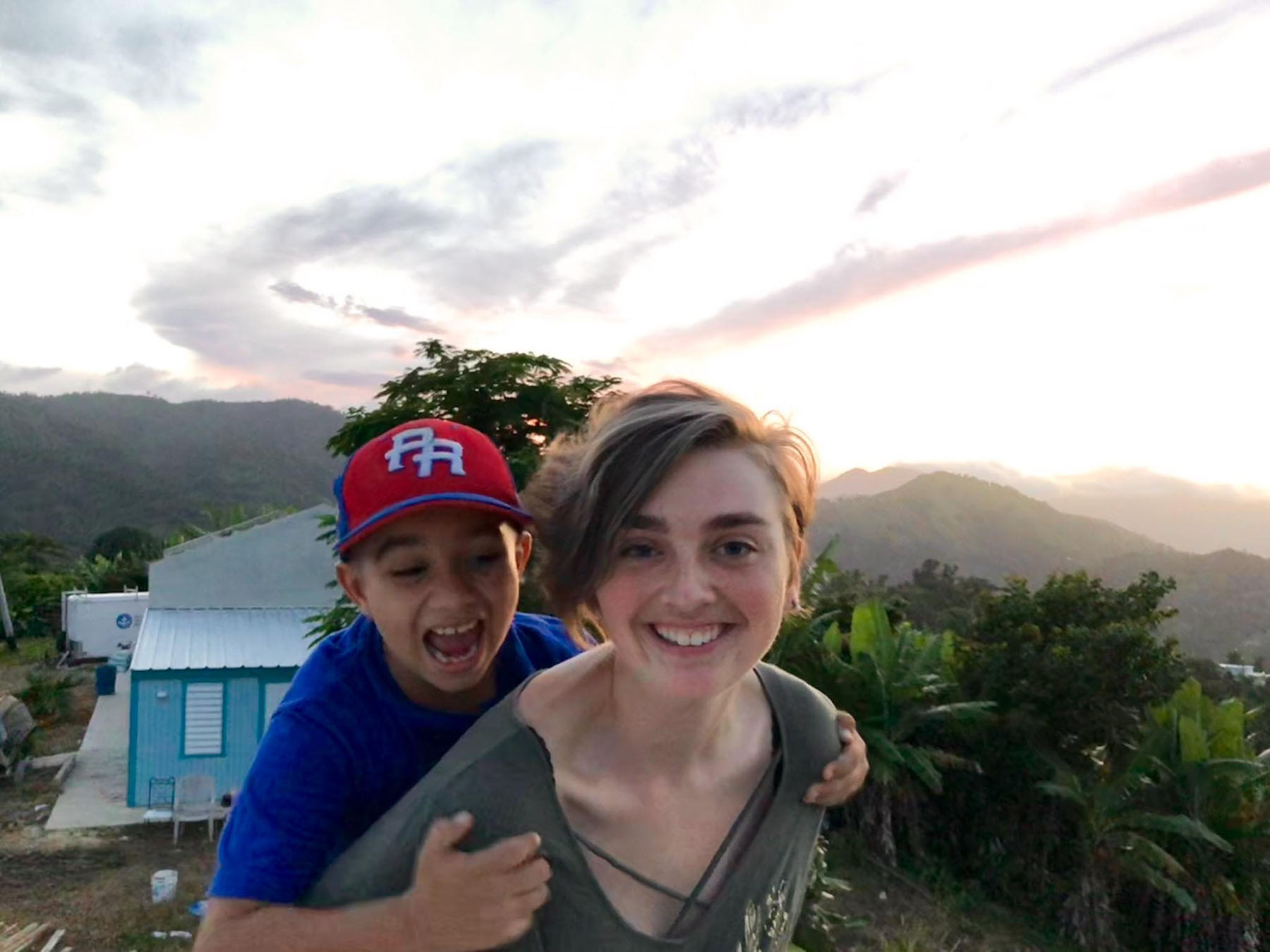Masonry is a trade defined as “the building of structures from individual units, which are often laid in and bound together by mortar.” This is something I feel connected to in my life figuratively and literally.
My compadre Sandra and I, along with three other students, had the opportunity to spend our fall break in Puerto Rico working with people recovering from the devastation caused by hurricane Maria last September.
If you don’t know much about disaster relief you might not realize that it is a very long journey.
The opportunity was brought to our attention by our friend Angel Miranda, a local pastor in the area who is from Puerto Rico.
First, I will say Sandra and I are often cautious about the impact of short-term “mission” work. We have awareness of systemic needs and don’t want to engage in things that will benefit us emotionally more than those we are trying to “help”.
But if you happen to know us then you also understand we are people who deeply believe in the power of small acts; the importance of relationships and conversations and sharing food (of course).
We arrived in San Juan and were given a brief orientation of Puerto Rico — a crash course history, the lowdown on the recovery process and information on where we would be staying. We learned we were the 24th group to come with Mennonite Disaster Service (MDS) and began to understand what we could realistically give to this effort.
Sandra reflects that “I understood that the importance of our work was not to do it all, but rather to do our part with all of our heart and to really show that we are working with them.”
With this in mind we traveled through the beautiful and narrow roads of Utuado, a name derived from a Taíno word Otoao, meaning “between mountains.” We fittingly arrived on a peak to the home of la Iglesia Menonita Camino de Vida. We marveled at the incredible landscape and were brought back down to earth when we saw blue tarps functioning as roofs and plywood for walls.
Physically meeting families who have experienced so much devastation creates such a deep bond of empathy.
In the mornings we rose with the sun and the sound of cats and chickens. To begin our day we drank a strong mug of cafe con leche. One of our jobs was working alongside a few men as rudimentary masons carrying concrete blocks, tying rebar, mixing cement by hand, and laying the walls. This became one of our favorite jobs as it was up a hill which gave us access to a panoramic view, mountain breezes and wonderful company to work with.
Our other jobs included painting the walls inside the pastor’s new home and laying gorgeous ceramic tiles for their floor. As guests, we were always very well fed with plates of arroz con gandules, papaya, mofongo, guineos, huevos and papas.
In the evenings, as the sun set, we played volleyball and futball and ran up and down the hill in the very important carreras (as stated by 6-year-old Jaime). When it got dark we sat on the hill admiring the brilliant stars and moon and listened to the song of the coquis, a small native frog. We had platicar and time spent in one another’s company always seemed to be filled with laughter. My face constantly donned a smile and when I left my eyes couldn’t help but release a few tears.
People thanked us for ‘sacrificing’ our week but I want to clarify how much that week was a gift to each of us. Each of those experiences was a small piece of the things that make for a meaningful life.
People who want to help after a natural disaster are not just a pair of hands to move the work of cleanup or rebuild alongside, they are also a set of ears to listen and a heart to empathize with people who are in need of healing and comfort.
As people working to build a just society, I think we can call ourselves architects, maybe masons even. The grassroots actions and relationships function as the bricks and our values are the mortar. Together we can make a structure that has room for everyone.



